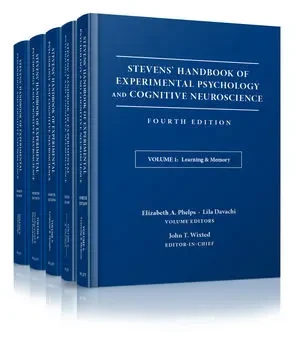
Jewish Emancipation
Smartfox Books Code: PR9740
Normally: $106
"Jewish Emancipation: A History Across Five Centuries" by David Sorkin offers the first comprehensive account of the process by which Jews in the modern world became citizens endowed with civil and political rights. This groundbreaking book reorients our understanding of Jewish history by focusing on emancipation as the central, yet often overlooked, event that has shaped Jewish life from the mid-sixteenth century to the present day. While the Holocaust and the founding of the State of Israel are pivotal moments in modern Jewish history, Sorkin argues that these events are part of a broader, more complex narrative of emancipation—a process that has unfolded over centuries and continues to shape Jewish life today.
Sorkin begins by challenging the conventional wisdom that Jewish emancipation was a singular, linear event that started with the Enlightenment and culminated with the acquisition of rights in Europe by the late nineteenth and early twentieth centuries. Instead, he presents emancipation as a multifaceted, multidirectional, and often ambiguous process characterized by deflections, reversals, and uneven progress. Emancipation was not merely a series of legislative acts granting Jews rights; it was a dynamic and ongoing struggle for recognition, inclusion, and equality in diverse contexts across the globe.
The book traces the roots of emancipation to the mid-sixteenth century, a period that saw the gradual erosion of medieval restrictions on Jewish life in Europe. As Sorkin explains, this period marked the beginning of a long and arduous journey toward citizenship for Jews, a journey that would span continents and centuries. From the Italian city-states to the Ottoman Empire, from the courts of the Habsburgs to the salons of Enlightenment France, Jews navigated complex and often hostile environments in their quest for rights and recognition.
Sorkin meticulously details the varying paths to emancipation in different regions. In Western Europe, the Enlightenment and the French Revolution played crucial roles in advancing Jewish rights, but these gains were often precarious and subject to reversal. The Napoleonic era, for example, offered Jews unprecedented opportunities for integration, but also imposed new challenges as they were required to balance their religious and civic identities in ways that often led to internal conflict and external scrutiny.
In Central and Eastern Europe, the road to emancipation was even more fraught. Sorkin highlights the uneven progress in regions like the German states, where Jews gained partial rights in the early nineteenth century, only to face backlash and renewed restrictions later. The story in Russia was similarly complex, with Jews achieving significant rights following the 1917 revolution, only to see these gains erode under Soviet rule. Sorkin’s analysis reveals the contingent nature of Jewish emancipation, where progress was often met with resistance and where the acquisition of rights was never guaranteed or final.
The narrative also extends beyond Europe to include the experiences of Jews in North Africa, the Middle East, and the United States. In these regions, emancipation took on different forms, shaped by local histories and political dynamics. For example, in the Ottoman Empire and its successor states, Jews experienced a form of emancipation through their inclusion in broader processes of modernization and reform. However, this inclusion was often conditional and could be revoked or limited depending on the political climate.
The story of Jewish emancipation in the United States presents yet another variation on the theme. Sorkin shows how American Jews mobilized twice for emancipation: first in the nineteenth century for political rights, and later in the twentieth century for civil rights, particularly in the face of discrimination and segregation. This dual struggle underscores the ongoing nature of emancipation, where gains in one area do not necessarily translate into full equality or protection in another.
Sorkin’s analysis also addresses the complexities of emancipation in Israel, where the establishment of a Jewish state has not resolved the challenges of ensuring equality among its diverse citizens. The struggle for equality in Israel reflects the broader tensions and contradictions that have characterized Jewish emancipation throughout history. Sorkin highlights the ways in which the state has both advanced and impeded the rights of its citizens, particularly in the context of its Arab minority and other marginalized groups.
Throughout the book, Sorkin emphasizes the idea that emancipation is not merely a historical event, but an ongoing process that continues to shape Jewish life today. The book’s final chapters explore how the legacies of emancipation have influenced contemporary Jewish identity, politics, and culture. Sorkin argues that understanding the history of Jewish emancipation is essential for grasping the complexities of modern Jewish life, including the challenges of antisemitism, assimilation, and the relationship between Jewish communities and the states in which they live.
One of the strengths of "Jewish Emancipation" is its global scope. Sorkin does not confine his analysis to Europe but includes the experiences of Jews in the Middle East, North Africa, and the Americas, offering a truly comprehensive account of how Jews became citizens in diverse contexts. This global perspective allows readers to see the varied and interconnected ways in which Jews have navigated the challenges of emancipation across different societies and historical periods.
In conclusion, "Jewish Emancipation" is a landmark work that offers a new understanding of Jewish history. By focusing on the process of emancipation, Sorkin provides a fresh perspective on the central events and themes that have shaped Jewish life over the past five centuries. The book is an essential read for anyone interested in Jewish history, as well as those concerned with broader questions of citizenship, rights, and identity in the modern world. Sorkin’s meticulous research, combined with his engaging narrative style, makes this a compelling and informative work that will stand as a definitive account of Jewish emancipation for years to come.

















.jpg)
















































ulva-Logo.jpg)
